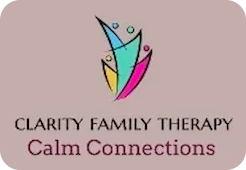Marriage Counselling in Dubbo
Contact Us
Email Address
At Clarity Family Therapy, I understand that maintaining a harmonious marriage can sometimes be challenging. The journey is seldom straightforward and often, couples find themselves in need of professional help to navigate their path. This is where marriage services come into play. I can provide you with support, tools and guidance to help foster a healthy and successful relationship.
How Marriage Counselling Can Help
Marriage counselling can be a transformative tool for couples who are experiencing issues in their relationship. It can assist in improving communication, resolving conflicts and strengthening the bond between partners. At Clarity Family Therapy I help couples with understanding each other better, promoting empathy and compassion and fostering healthier relationship dynamics.
Whether you’re dealing with significant problems or simply wish to improve aspects of your relationship, I can provide support and guidance. I utilise evidence-based approaches to help couples navigate through challenges such as trust issues, disagreements over parenting or financial matters, or loss of connection and intimacy.
The Process
The counselling process at Clarity Family Therapy is designed to put you at ease from your first interaction with us. I begin with an initial consultation, during which I seek to understand your unique situation and the challenges you’re facing. This is followed by a series of counselling sessions tailored to your specific needs.
In these sessions, I can guide you and your partner through meaningful conversations, encouraging open communication and mutual understanding. Rest assured, I maintain a safe and non-judgemental space where both partners can express their feelings freely and without fear of reproach.
Benefits Of Choosing Clarity Family Therapy
Choosing Clarity Family Therapy for your marriage counselling can bring a compassionate, empathetic and caring approach to your relationship’s challenges.
I deeply value the well-being of my clients. I’m not only committed to providing
professional counselling services, but also to creating a welcoming and nurturing environment where you can feel comfortable expressing your thoughts and emotions. My expertise, combined with a commitment to care, helps to ensure you receive appropriate support throughout your journey.
Finding The Right Marriage Counsellor: Your Guide To Success
Choosing the right marriage counsellor can have a profound impact on your journey towards a healthier, more fulfilling relationship. Here are some factors to delve into:
- Experience and Specialisation: Marriage counselling is a unique discipline with distinct challenges and methodologies. Ensure the counsellor you choose has dedicated training and substantial experience in this area. Look into their credentials, education and the types of clients they’ve worked with previously.
- Approach and Methodology: There are diverse therapeutic approaches, including cognitive-behavioural, solution-focused and emotion-focused therapy. It’s crucial to understand the counsellor’s methodology before starting therapy, as different approaches may work better for different couples or situations.
- A Safe Space: The counselling environment should be a sanctuary where both partners feel they can express themselves freely, without fear of judgement or repercussions. Trust and confidentiality are fundamental for effective therapy.
- Personal Connection: A good rapport with your counsellor is crucial. You’ll be sharing intimate details about your relationship, so it’s important you feel at ease and understood by your therapist. Take advantage of initial consultations to gauge whether you both feel comfortable with this professional.
Common Relationship Problems: Understanding And Overcoming Challenges
Every relationship experiences hiccups. By understanding common problems, you can navigate them more effectively:
- Communication Difficulties: A foundation of every relationship, effective communication isn’t always innate and often requires learning and practise. Misunderstandings, assumptions or harsh words can lead to resentment, hurt feelings and a breakdown in trust.
- Lack of Quality Time: Life’s pace can make it challenging to carve out quality time. Without shared experiences or time spent nurturing the relationship, emotional distance can grow, leading to feelings of disconnect.
- Conflict over Finances: Financial disagreements often stem from differing values, goals and experiences with money. It’s crucial to have open conversations about finances, understand each other’s perspectives and compromise.
- Differing Expectations: Misaligned expectations in areas such as intimacy, parenting, household chores or future goals can create conflict. Understanding and respect for each other’s viewpoints are vital, as is the willingness to negotiate and compromise.
- Infidelity: Trust is the bedrock of any relationship. When broken, it causes severe emotional pain and potentially irreparable damage. Rebuilding trust requires time, patience, understanding and often, professional help.
Marriage Warning Signs: Recognising The Need For Help
Certain signs may suggest the need for professional help in your relationship:
- Constant Conflict: It’s healthy and normal to have disagreements in a relationship, but if these regularly escalate into heated arguments or minor issues result in major battles, it may indicate more profound, underlying problems.
- Avoiding Each Other: While some alone time is healthy, consistently choosing to be apart or feeling relief when your partner isn’t around, may signal growing emotional distance or dissatisfaction in the relationship.
- Lack of Emotional or Physical Intimacy: A decrease in emotional connection or physical affection or a lack of desire to be close to your partner, may point to relational problems.
- Frequent Thoughts of Separation: If either partner often finds themselves considering what life might be like without the other, it might be time to seek professional help. This can be an indication of deep-seated unhappiness or dissatisfaction in the relationship.













